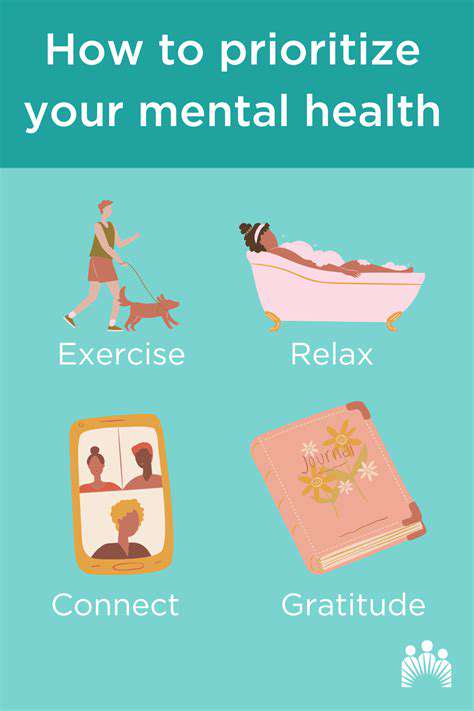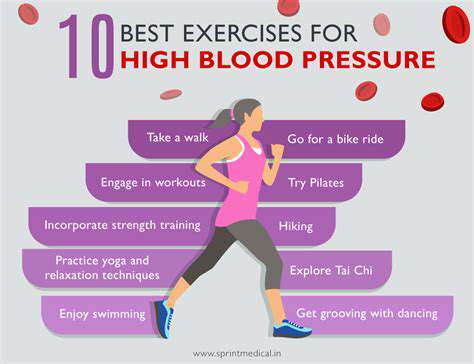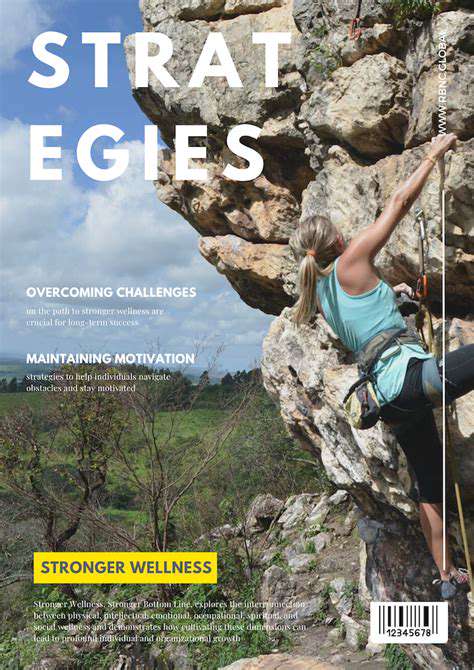Health Tips for Seniors Living Independently

Making Movement Part of Daily Life
Finding ways to move throughout the day plays a fundamental role in preserving physical health and warding off potential health complications. Opting for stairs over elevators, pacing while on phone calls, or choosing distant parking spots creates meaningful opportunities for movement. These minor adjustments accumulate, producing noticeable benefits for maintaining activity and mobility over time.
Exercise as a Foundation for Mobility
Consistent physical activity, combining both aerobic exercise and resistance training, forms the cornerstone of sustained mobility. Brisk walks, swimming sessions, or cycling routines enhance cardiovascular health while building endurance. Meanwhile, strength exercises fortify muscles and bones - critical elements for stability and fall prevention that directly support mobility.
Flexibility and Balance: Often Overlooked Essentials
Preserving flexibility and equilibrium significantly reduces injury risks and fall occurrences that can compromise mobility. Practices like yoga, tai chi, or simple stretching routines improve these physical attributes. Dedicating time to such activities helps maintain full range of motion while preventing mobility-limiting accidents.
Managing Health Conditions That Affect Movement
Various medical conditions can substantially limit mobility if left unaddressed. Proactively managing arthritis, osteoporosis, or neurological disorders through professional healthcare guidance proves essential for preserving movement capabilities. Tailored treatment plans developed with medical specialists can optimize physical function despite these challenges.
Nutrition's Impact on Physical Movement
Diet quality directly influences mobility by supporting musculoskeletal health. Adequate protein intake maintains muscle integrity, while proper vitamin and mineral consumption strengthens bones and joints. This nutritional foundation provides the energy required for daily movement and sustained activity.
The Critical Need for Recovery Periods
Often neglected, sufficient rest and recovery periods are paramount for preserving mobility and preventing overuse injuries. Allowing the body proper time to heal after physical exertion ensures continued performance capability and prevents debilitating fatigue. This recovery process represents a vital component of any sustainable mobility strategy.
Expert Guidance for Specialized Needs
Individuals with particular mobility concerns should consider consulting physical or occupational therapists. These professionals can design customized activity plans that address specific limitations while safely improving movement capacity. Their specialized knowledge proves especially valuable for those facing unique physical challenges.
Cultivating Mental and Emotional Wellness

The Necessity of Personal Care
Attending to personal needs isn't indulgent - it's fundamental for psychological and emotional health. Activities that refresh the mind and spirit enhance stress management, concentration, and life satisfaction. Carving out personal time, even briefly, builds resilience against daily pressures. This might involve meditation, outdoor time, creative pursuits, or simple relaxation techniques.
Consistent self-care practices, from brief mindfulness sessions to extended leisure activities, foster emotional equilibrium and positive perspectives. Such habits serve as preventive measures against emotional exhaustion while reinforcing personal identity.
Recognizing and Managing Stress Sources
Effective stress management begins with identifying its origins. Whether stemming from professional, interpersonal, or financial circumstances, recognizing these triggers enables development of targeted coping strategies. Observing stress patterns also facilitates anticipation of future challenges and preparation of appropriate responses.
Building Effective Coping Strategies
Developing healthy response mechanisms is essential for navigating stressful situations and emotional difficulties. Options range from immediate techniques like controlled breathing to more involved approaches such as expressive writing or professional counseling. Maintaining a repertoire of constructive coping methods provides reliable tools for handling life's inevitable challenges.
Mindfulness practice and enjoyable activities substantially reduce stress while promoting emotional health. Physical activity particularly benefits mood through endorphin release, offering natural relief from anxious or depressive feelings.
Nurturing Supportive Relationships
Meaningful social connections form a protective factor for mental health. Maintaining quality relationships with trusted individuals creates belonging and support systems that buffer against stress while enhancing life satisfaction. These connections thrive when built on mutual respect, clear boundaries, and open communication.
Accessing Professional Mental Health Resources
Persistent psychological difficulties warrant professional assistance. Mental health specialists offer evidence-based strategies for emotional regulation, improved coping, and life navigation. Seeking such support demonstrates personal strength and commitment to wellbeing. Professional guidance can catalyze significant personal development and emotional healing.

Read more about Health Tips for Seniors Living Independently
Hot Recommendations
-
*Guide to Managing Gout Through Diet
-
*Best Habits for Financial Well being
-
*How to Build a Routine for Better Mental Health
-
*How to Eat Healthy on a Budget [Tips & Meal Ideas]
-
*Guide to Practicing Self Acceptance
-
*How to Incorporate More Movement Into Your Day
-
*Guide to Managing Chronic Pain Naturally
-
*Guide to Building a Reading Habit for Well being
-
*Top 5 Weight Loss Supplements That Actually Work
-
*Best Exercises for Postpartum Recovery [Beyond Abdominal Work]









![How to Choose Sustainable Seafood [A Guide]](/static/images/26/2025-05/ExploringSeafoodChoices3ASpeciesandRegionalConsiderations.jpg)

